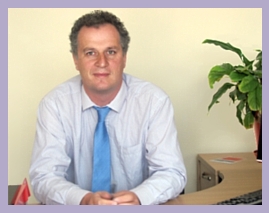 by Nick Pahl, CEO of the British Acupuncture Council
by Nick Pahl, CEO of the British Acupuncture Council
2014 is the centenary of the start of the First World War. Certainly I don’t want to suffer what happened to Asquith the then Prime Minister. Allegedly, he used to spend Cabinet meetings translating dispatches from the front into Latin verse, believing there was little else he could do with them … my lesson from this is that we need to ensure we respond to concerns, particularly from patients and the public.
Patients are, of course, at the centre of all we do. This month I’m attending an NHS England event that explores ways of collaborating and sharing resources to increase patient participation. We need to forge patient participation links and networks – it results in more efficient use of resources. In this age of transparency, increasing the strength of patient/public voice in all our work is also important.
At the event, I’m interested to hear more about the development of:
- NHS People Bank – a database to help facilitate and match virtual and face-to-face engagement/volunteering opportunities with the public, patient, carers, organisations and
- NHS Citizen – a new model for participation which aims to give citizens and organisations a direct, transparent route for their voices to reach the heart of the NHS England decision making process.
Personally, if I am ill, I don’t particularly want to get involved in decision making and want the health professional to know what to do – but I do want to be cared for and treated with respect. Increasingly these days I think we have too much choice and I don’t feel empowered by having a choice, more a sense of anxiety as to whether I’m making the right one.
My view is, for example, that if I was offered an NHS personal health budget (these start in April) I may not take it up! However, I do want to be listened to carefully, with care and compassion as only I am an expert in my own health. I think what is important is a sense of partnership between patients and health professionals to provide good care. This requires a change of power dynamics. Do health professionals have the skills and awareness to make that change?
One concern I have is that, instead of focusing on good care, we too easily turn to technology and products and see that as innovation – rather than focus on skills to develop good care and a partnership with the patient. The cynic in me thinks this technology and product based approach is the impact of commercial interests in healthcare. Another concern is I think good care is not for just one condition. Does one MSK condition stand alone? I’m sure we realise the fundamental interdependency of symptoms on the human body – and I don’t see a move to a “pathways” as a way of necessarily ensuring good care. I am heartened when I see ARMA focusing on holistic person-centred care – we can do more for less that way – but I’m not sure if decision makers see this as the way forward…

